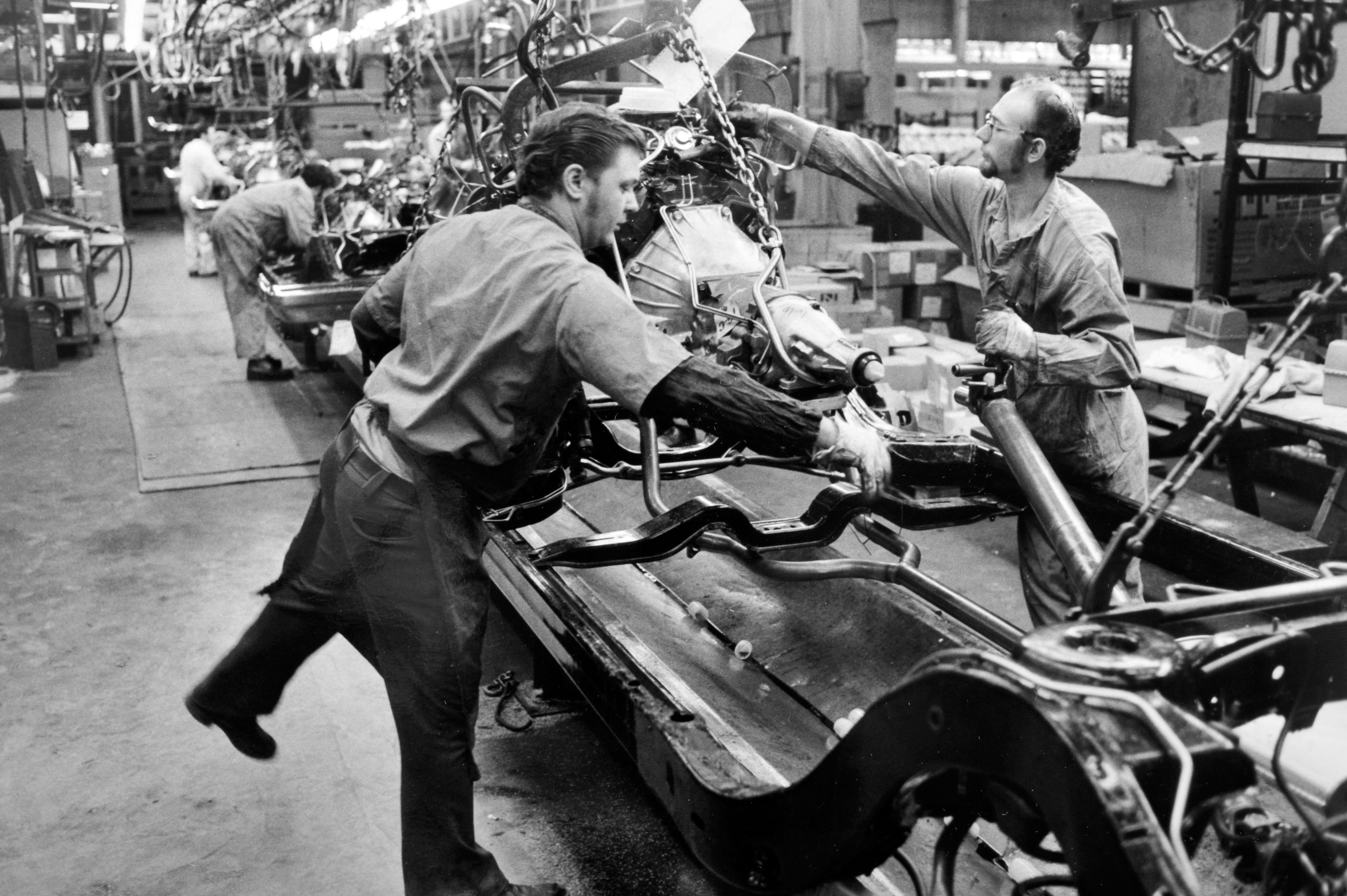
The Auto Pact is credited for invigorating the domestic Canadian auto industry. It established new rules for the manufacture of cars in both the U.S. and Canada. By imposing a content requirement for cars manufactured and sold in Canada, the Auto Pact represented an important compromise between the principles of free trade and market fairness. It stands as an important reminder of the importance for balance, especially in light of more recent trade negotiations, like the Trans Pacific Partnership (TPP) agreement, which threaten to undermine Canada’s auto industry.
The first commercially produced car in Canada, the Le Roy, went on sale in 1902. It was actually a close copy of the popular American “Oldsmobile”. Two years later, Henry Ford established Ford of Canada to produce his famous Model T’s. This was the beginning of the interdependent Canada-U.S. auto industry.
Prior to the Auto Pact, car and truck parts were made in the US and assembled in Canada. The Auto Pact resulted in the removal of tariffs between the two countries, meaning parts and vehicles could travel freely across the border. There were also job guarantees stipulating that automobile production in Canada would not fall below 1964 levels.
The goals of the pact were to increase efficiency and reduce production costs in Canada by producing a smaller range of vehicles and components than previously. The Pact also sought to lower vehicle prices for consumers. The main result was an invigorated Canadian car industry – and a stronger economy. More jobs were created, wages in the sector increased, and within a short time, the auto sector became Canada’s most important industry. However, importantly, the Canadian industry remained firmly in the hands of the American “Big Three” companies – Ford, General Motors and Chrysler.
Ultimately, “free trade” killed the Auto Pact. The deal was always about protecting jobs while improving trade, but today’s global trade regimes put the free movement of capital ahead of workers and communities. In 2001, the World Trade Organization (WTO) decreed that the Auto Pact was illegal and Canada’s auto industry has been in turmoil ever since.


